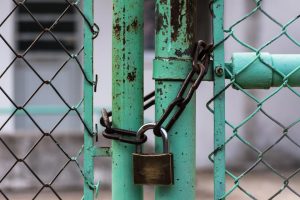 Anxiety and its close relative, fear are your built-in home security system. Don’t eat that food of dubious providence; it could be poison! Watch out for people who are overly friendly, not friendly enough or remind you of Uncle Wally. You know how shifty he was. Some security systems are set on high alert while others are less easily alarmed. Teenagers under the influence of hormones and an underdeveloped prefrontal cortex, will override the system to some extent. They engage in risky behaviors without considering the consequences for the adrenaline rush or to prevent social exclusion, which to them feels like the ultimate danger.
Anxiety and its close relative, fear are your built-in home security system. Don’t eat that food of dubious providence; it could be poison! Watch out for people who are overly friendly, not friendly enough or remind you of Uncle Wally. You know how shifty he was. Some security systems are set on high alert while others are less easily alarmed. Teenagers under the influence of hormones and an underdeveloped prefrontal cortex, will override the system to some extent. They engage in risky behaviors without considering the consequences for the adrenaline rush or to prevent social exclusion, which to them feels like the ultimate danger.
As we age, we tend to get more cautious. Most people over sixty prefer a nice cup of tea over a bungee jump. They are less apt to take big risks because the body has less ability to handle the wave of stress hormones induced by surprises and thrills over time. Neurotransmitter levels naturally decline, also. Dopamine, a neurotransmitter associated with the higher drive for excitement and novelty found in adolescents is among the first to drop as we get older.[1]
The bottom line: anxiety is the body’s biological response to our innate desire for safety, which increases with age. It is a biological imperative for most of us. Even those who seem tough and fearless are worried about something, even if that anxiety is no more than the fear of missing out or not reaching their potential. We want to appreciate how our bodies are designed to protect us without being overrun with excessive worry or shut down by protective impulses.
The first step is to be aware that the nervous system reacts automatically before you can consider other options. Further, the brain does not distinguish between real and perceived danger. If you are worried about losing your job, you will generate the same stress hormone response as if you lost your job. This is why people can be relieved when they get bad news. A pink slip in your mailbox can be liberating after months of losing your job in your mind.
The worst that could happen, that is someone who you love is hurt or even killed, can be less stressful than the ongoing worry about such an event.
It behooves you to observe and question your thoughts. The body may be designed to keep you safe but the mind can get tangled in the security system and leave you unable to distinguish between real and perceived stress. When your heart rate goes up, you might feel worried but something is not necessarily wrong. If you are in danger, use your instincts and get out but most fears are not about immediate threats. Consciously slow down your breathing. After inhaling hold the air in your lungs for a few seconds and then exhale leisurely. In this moment, are you safe? If so, you can give your security system a break.
[1] https://www.tandfonline.com/doi/abs/10.3109/08039489309102779?journalCode=ipsc20

